University Nursing Research: Mindfulness Therapy for Military Veterans
VerifiedAdded on 2023/04/17
|6
|1005
|281
Report
AI Summary
This report presents an evidence-based nursing research study focusing on the application of mindfulness-based cognitive therapy (MBCT) to address mental health issues, including depression and post-traumatic stress disorder (PTSD), in military veterans. The proposed solution involves a 10-week MBCT program, chosen for its potential to mitigate suicide ideation and depressive symptoms, supported by existing research demonstrating its efficacy. The report acknowledges potential barriers to implementation, such as staffing and training limitations, and proposes strategies to overcome these, like recruiting trained staff or providing extensive training. The intervention aligns with the military unit's organizational culture of prioritizing high-quality care. The expected outcomes include reductions in depressive and PTSD symptoms, decreased suicide ideation and rates, and an improved quality of life for veterans. The methodology involves screening veterans using DSM-IV criteria, followed by the 10-week MBCT program, with outcomes evaluated using the Beck’s Depression Inventory and assessments of suicidal behavior. The report concludes that MBCT can enhance the professional expertise of veterans and improve the quality of care within the military unit, offering a valuable solution for addressing mental health challenges faced by this population.
1 out of 6
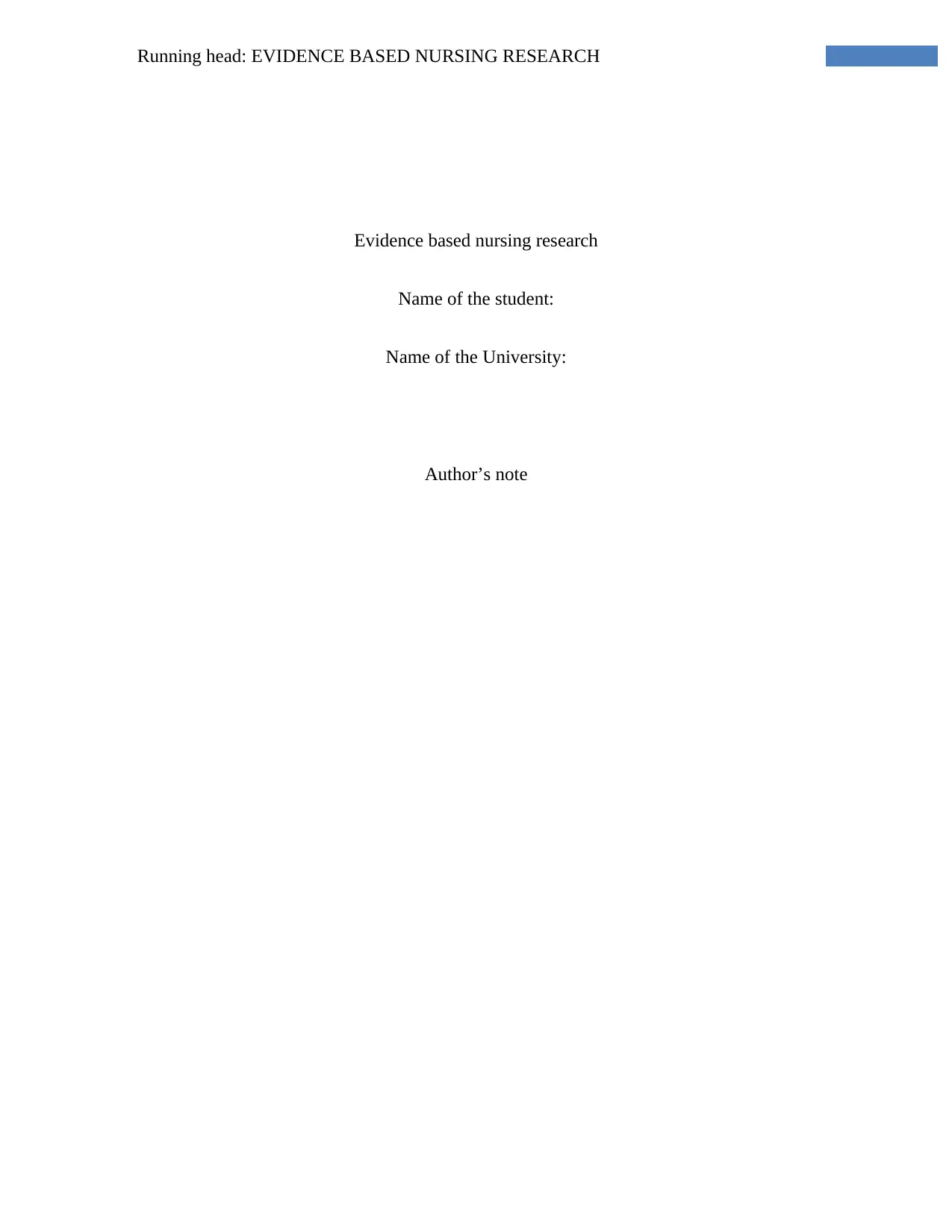
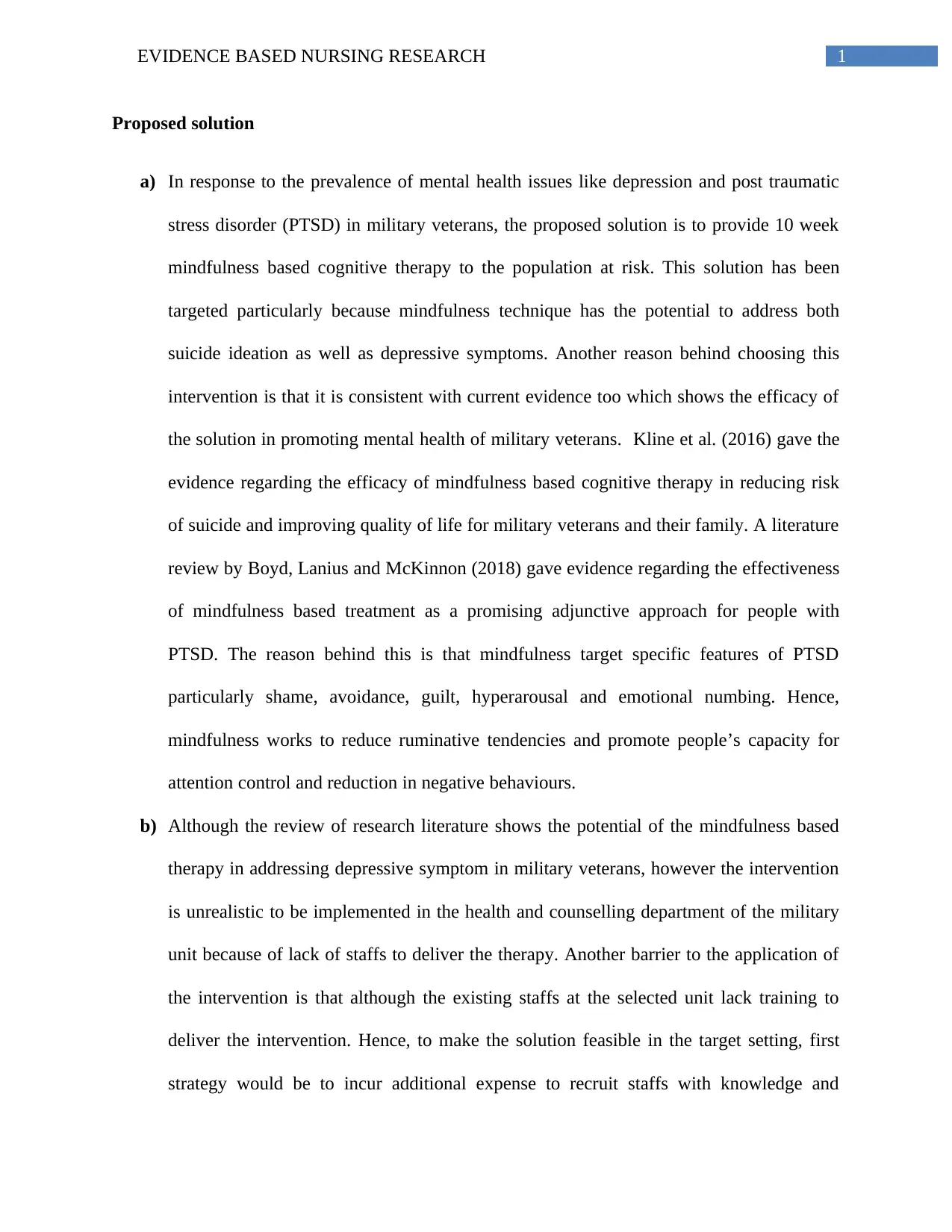
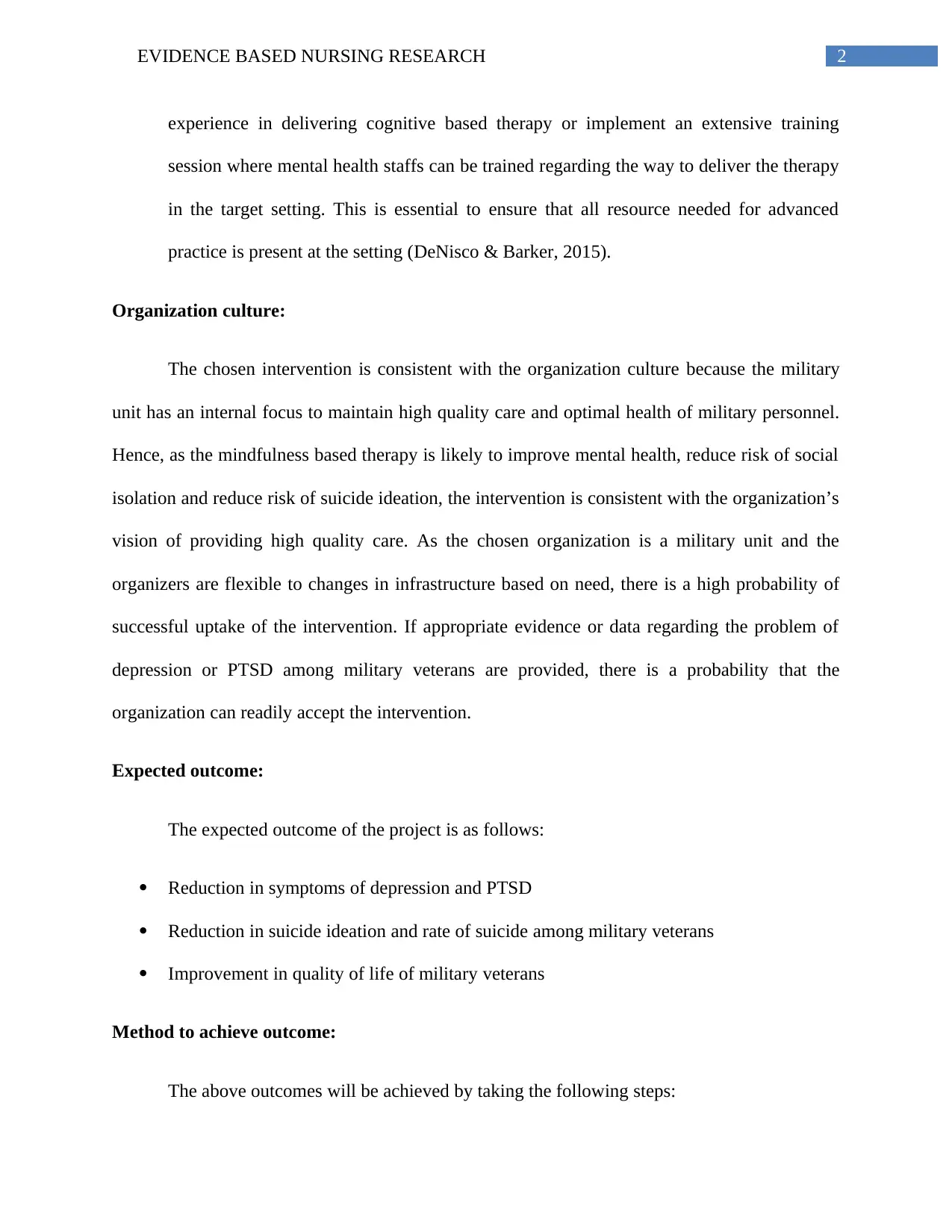

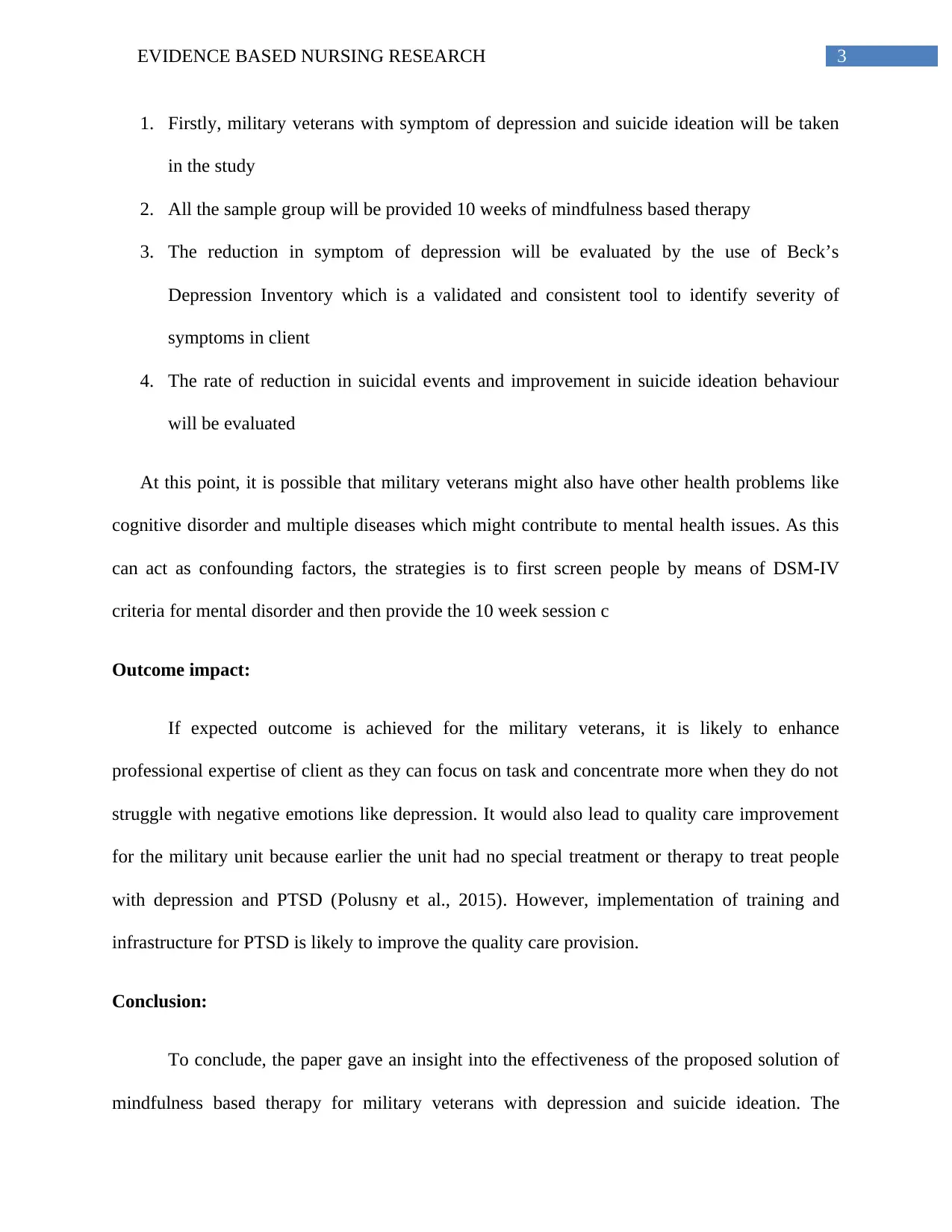

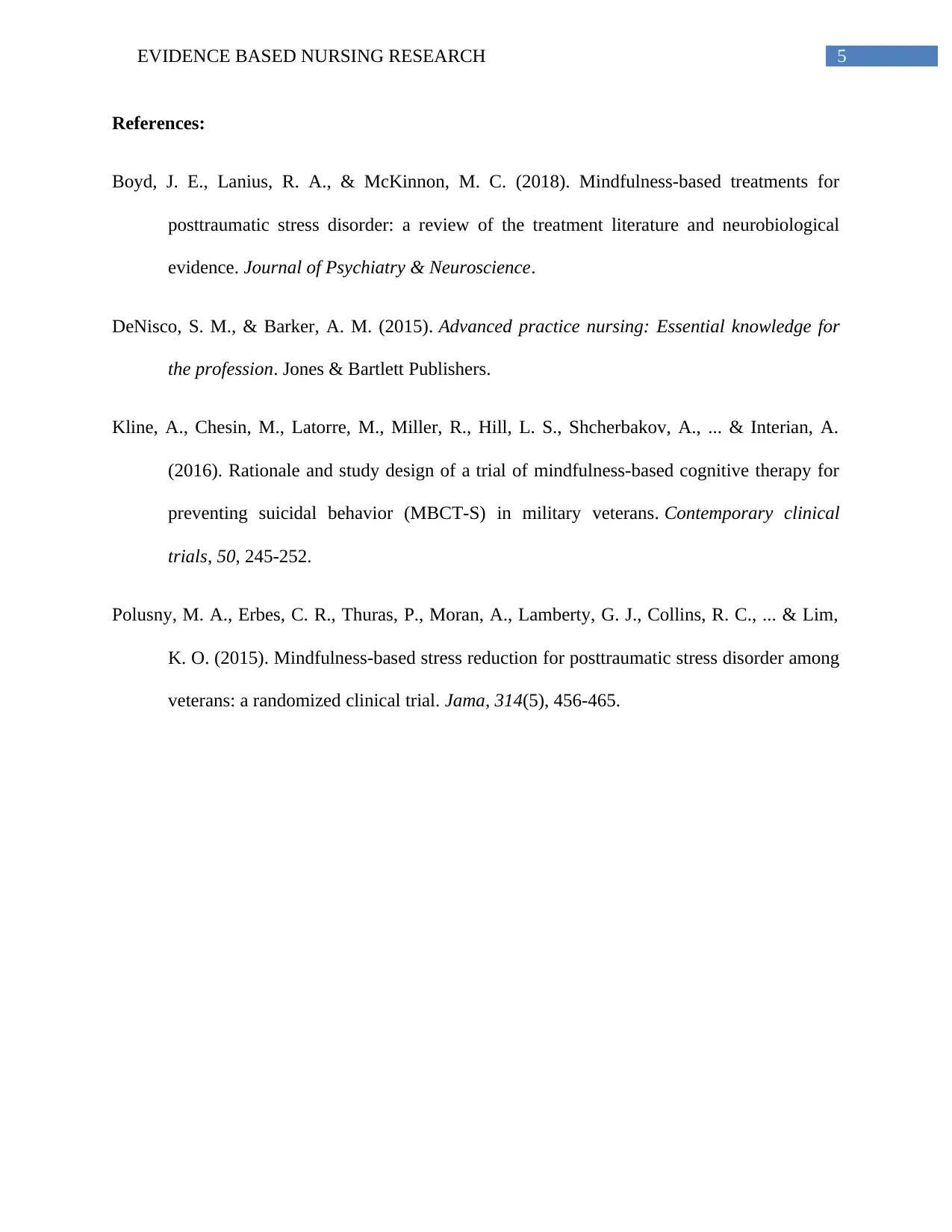






![[object Object]](/_next/static/media/star-bottom.7253800d.svg)